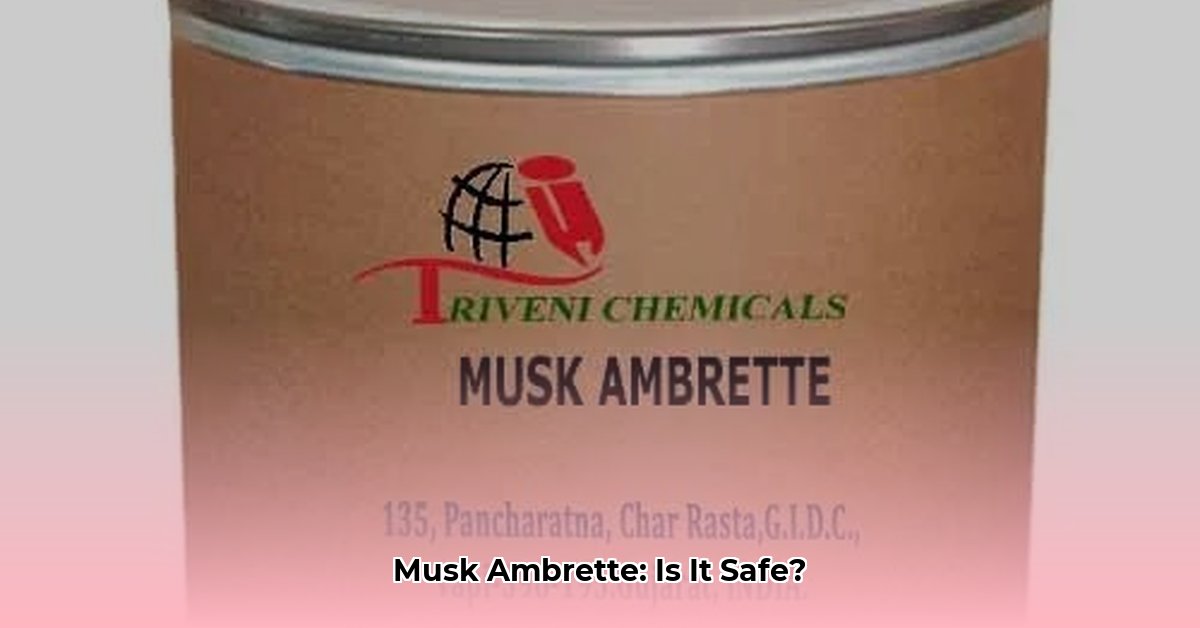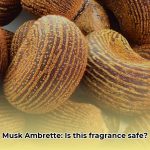What is Musk Ambrette and Why Should You Avoid It?
Musk ambrette, a synthetic fragrance used to mimic the natural scent of musk, is found in various everyday products. While it might make things smell appealing, emerging research suggests potential health risks, particularly hormonal disruption. Studies, including those by the National Institute of Environmental Health Sciences (NIEHS), suggest a possible link between musk ambrette exposure and early puberty in children. This is concerning because early puberty is associated with increased risks of several health problems later in life, including certain cancers. Additionally, musk ambrette has been detected in maternal blood, umbilical cord blood, and breast milk, raising concerns about potential impacts on fetal and infant development.
Where is Musk Ambrette Found?
Musk ambrette can be challenging to identify because it often hides under the generic term “fragrance” or “parfum” on product labels. This umbrella term can encompass hundreds of chemicals, making it difficult to know exactly what you’re exposed to. Here’s a breakdown of product categories where musk ambrette might be present:
- Personal Care Products: Perfumes, colognes, lotions, shampoos, conditioners, deodorants, soaps, shaving cream, aftershave, makeup.
- Cleaning Products: Laundry detergents, fabric softeners, dish soaps, all-purpose cleaners, air fresheners, disinfecting wipes.
- Other Products: Some foods, spices, pharmaceuticals, candles, and incense. It’s important to note that while musk ambrette’s use in food has decreased, it can still appear in flavorings.
How to Identify Musk Ambrette on Product Labels
Identifying musk ambrette can feel like a detective mission. Because of the “fragrance” loophole, here’s how to navigate product labels:
- Check for “Fragrance”: If “fragrance” or “parfum” is listed, it may contain musk ambrette.
- Contact the Manufacturer: Reach out directly to the company and ask if their product contains musk ambrette. They may be transparent and disclose this information.
- Opt for “Unscented”: The surest way to avoid musk ambrette is to choose “fragrance-free” or “unscented” products.
Safer Alternatives
Choosing unscented products doesn’t mean sacrificing pleasant smells. Many natural alternatives exist, including:
- Essential Oils: Plant-derived oils like lavender, citrus, and rosemary offer delightful natural fragrances.
- Natural Extracts: These provide pleasing scents without the potential risks of synthetic fragrances. Consider brands that prioritize natural ingredients and transparent labeling.
Regulatory Status and GRAS
The regulatory status of musk ambrette varies globally. The European Union has banned it in cosmetics, while Canada restricts its use. In the US, musk ambrette was previously GRAS (Generally Recognized As Safe), a designation determined by industry self-assessment. However, it was later removed from this list due to toxicity concerns. While current research suggests potential harm, it’s important to acknowledge that research is ongoing and further studies are needed to determine the long-term effects of musk ambrette exposure. This underscores the importance of staying informed and making conscious choices based on available information.
Frequently Asked Questions (FAQ)
- What are the long-term health effects of musk ambrette exposure? More research is needed, but scientists suspect potential hormonal disruption and reproductive issues with long-term exposure. Specific long-term effects are still under investigation.
- Are any synthetic musks truly safe? Some newer synthetic musks are considered potentially safer than older versions like musk ambrette, but research continues. It’s prudent to approach all synthetic fragrances with caution.
- What should I do if I think I’ve been exposed to musk ambrette? Minimize further exposure by switching to fragrance-free products. If you’re concerned about health effects, consult a doctor or healthcare professional.
Related Concerns: Other Endocrine Disruptors
Musk ambrette isn’t the only endocrine disruptor to be aware of. Phthalates, commonly used in plastics and personal care products, also interfere with hormone function. The Environmental Working Group (EWG) offers resources and information on various chemicals found in consumer products, including phthalates, to help you make more informed choices. EWG Skin Deep Database
Conclusion
Staying informed and making conscious choices about the products you use is crucial. By understanding the potential risks associated with musk ambrette and seeking safer alternatives, you can take control of your health and well-being. Continue to research, support transparent brands, and advocate for stricter labeling regulations to protect yourself and your family from potentially harmful chemicals. Share this information to empower others to make informed decisions as well.
- How To Create Free Electricity Using Home Renewable Sources - January 30, 2026
- How to Produce Electricity at Home for Energy Independence - January 29, 2026
- How To Create Electricity At Home For Energy Independence - January 28, 2026
















